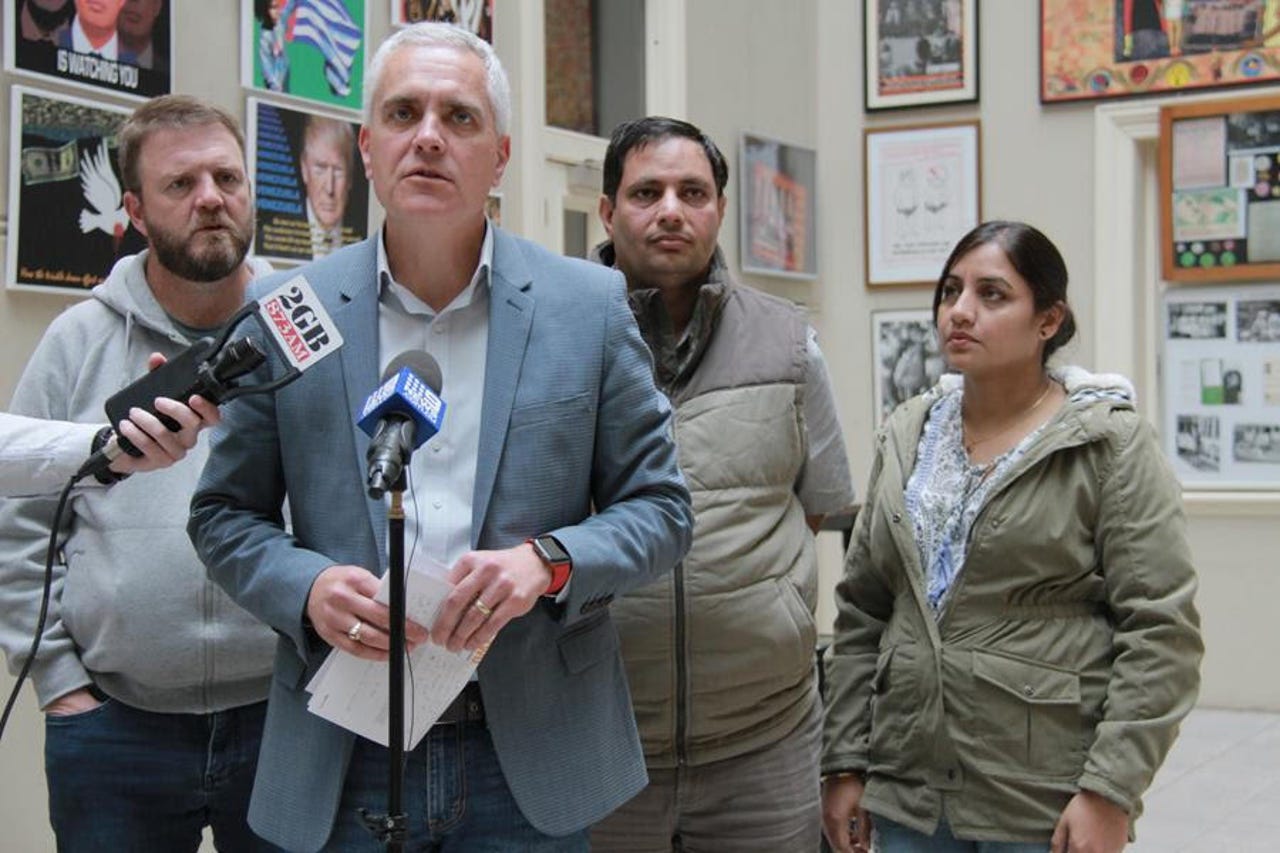Uber hit with lawsuit from former food delivery drivers


TWU national secretary Michael Kaine announces case against Uber.
Uber has joined the likes of Foodora and Deliveroo in becoming embattled with lawsuits from Australian food delivery drivers.
On Monday, two former UberEats drivers from Adelaide announced that they have filed a lawsuit against the ride-sharing giant for allegedly being dismissed unfairly and exploited.
The lawsuit is an appeal to a decision made by the Fair Work Commission last month, which found the drivers were not employees and therefore not entitled to unfair dismissal claims.
"Uber welcomed the Fair Work Commission's decision on this matter, it reflected what delivery partners tell us -- that they value the freedom and flexibility the Uber app provides," an Uber spokesperson told ZDNet.
One of the food delivery drivers, Amita Gupta, allegedly waited 96 hours to receive orders as an UberEats driver and was paid around AU$300 for her services -- amounting to less than AU$4 an hour. The Australian minimum wage is AU$18.93.
The lawsuit has been backed by the Transport Workers' Union (TWU), who previously supported a similar lawsuit against food delivery company Foodora and is currently backing another one against Deliveroo.
As touched on by TWU national secretary Michael Kaine during a press conference on Monday, much like earlier cases, this lawsuit's outcome will hinge on how much control Uber has over its food delivery drivers and whether they are classified as employees or independent contractors.
While Foodora's riders were eventually found to be employees by the Fair Work Commission, the Fair Work Ombudsman (FWO) in June found that Uber Australia's relationship with its drivers were not an employment relationship following its investigation into the company's practices.
"For [an employment] relationship to exist, the courts have determined that there must be, at a minimum, an obligation for an employee to perform work when it is demanded by the employer," Fair Work Ombudsman Sandra Parker said.
Kaine said that the FWO's decision was in relation to "flawed" laws and that government needs to create a working group to amend legislation and protect gig-economy workers from exploitation.
"The Ombudsman are always going to be there to enforce the law, but the current law is flawed … what we need is a body in place, a body that can set out what the appropriate rights should be for these workers right across a class, a body that can exist as a gatekeeper so that these new technology vehemists can't come in and just find a way around these laws," Kaine said.
Must read: Won't get fooled again: Gig economy second wave begins to break
Uber's drivers in Australia are currently not entitled to a minimum wage or benefits like superannuation, sick benefits, or stock options as they are independent contractors.
Lawsuits from drivers have popped up across the world, with an Uber driver operating in California filing a lawsuit last week against the company over whether they are contractors or employees.
This followed legislators in California passing a bill last week that could make gig economy companies reclassify their workers as employees. Amidst the legislative changes, Uber has continued to maintain that its drivers are not employees, but independent contractors.
"Several previous rulings have found that drivers' work is outside the usual course of Uber's business, which is serving as a technology platform for several different types of digital marketplaces," said Tony West, Uber's chief legal officer.
Separately, Uber is also facing a class action from over 6,000 taxi drivers in Australia, making it one of the biggest class actions in the country's history. The class action alleges that Uber operated illegally from April 1, 2014, to July 31, 2017, as its drivers did not have the proper licences or accreditation, resulting in monetary losses for taxi drivers.
Related Coverage
Plans for Melbourne's flying taxi service get serious as Uber Air head appointed
The company seems to be pushing forward with the launch of Uber Air in Melbourne next year.
Deliveroo faces lawsuit for allegedly underpaying food delivery riders
The food delivery rider allegedly only earned a bit more than half of the Australian minimum wage.
Foodora backpays AU$3m to some riders for unpaid super and wages
While 3,800 delivery riders that are owed back pay will receive a nil amount.
Australian Fair Work Ombudsman finds Uber drivers are not employees
Uber Australia does not require drivers to perform work at particular times and this was a key factor in its assessment.
How the gig economy will change in 2019 (TechRepublic)
The gig economy will continue to grow in 2019, and with it comes some new developments. Here's what to expect.